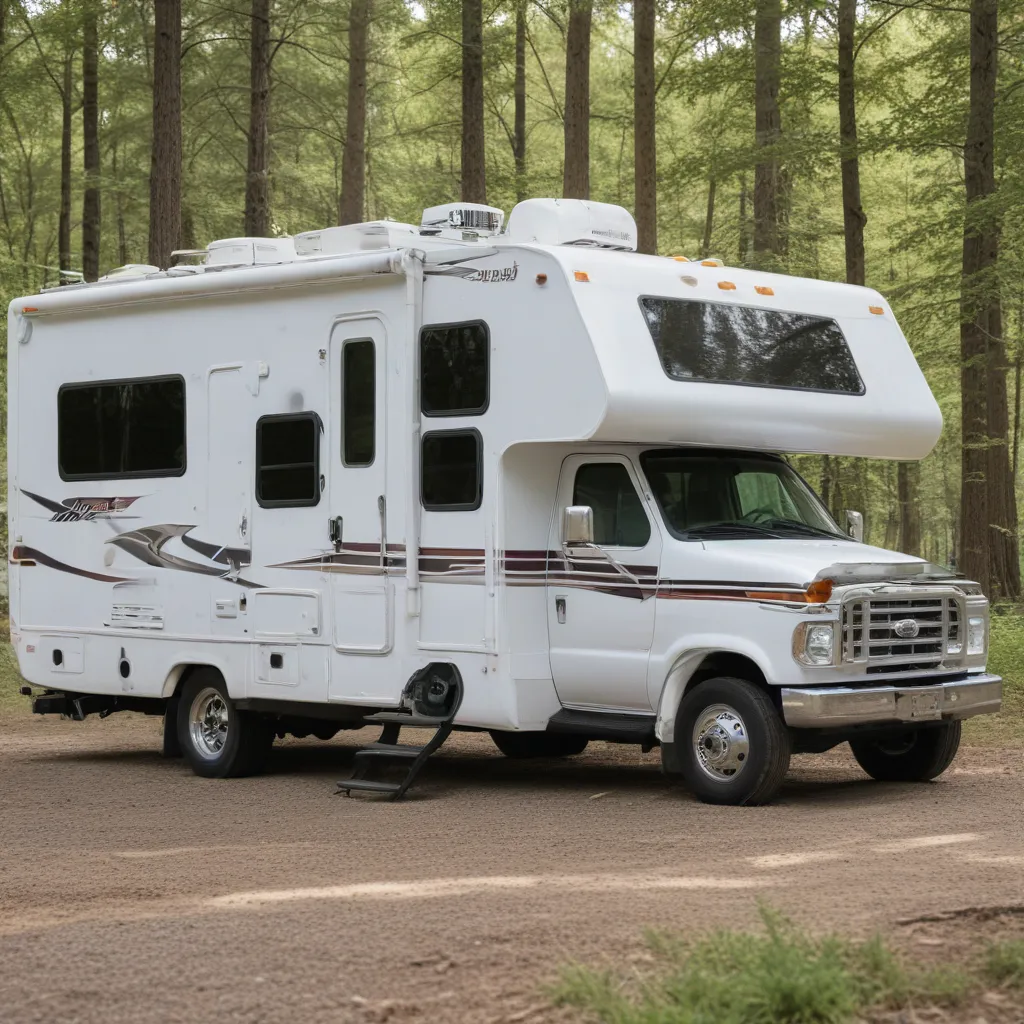
Understanding the Complexities of RV Maintenance
As an RV enthusiast and the proud owner of my very own home-on-wheels, I’ve come to appreciate the importance of maintaining the health of my beloved vehicle. It’s like a living, breathing entity – with its own unique quirks, needs, and a penchant for throwing the occasional curveball my way. And let me tell you, keeping an RV in tip-top shape is no easy feat.
It’s a delicate dance of preventative care, problem-solving, and a whole lot of patience. You see, an RV is like a mini-metropolis on wheels, with a dizzying array of interconnected systems – from the engine and transmission to the plumbing, electrical, and even the slide-outs. And let’s not forget the ever-evolving world of RV technology, where new features and gadgets are constantly being added to the mix.
Navigating this complex landscape can be a real challenge, especially for those of us who aren’t exactly gear-heads by nature. But fear not, my fellow RV enthusiasts! I’m here to share with you the importance of diagnostics in ensuring the long-term health and happiness of your home-on-the-road.
The Power of Preventative Maintenance
One of the key benefits of regular diagnostics is the ability to catch potential issues before they snowball into major problems. It’s like getting a full-body checkup for your RV – the mechanic can use specialized tools and techniques to uncover any underlying issues, even if they’re not yet causing visible symptoms.
Imagine, for a moment, that you’re happily cruising down the highway, soaking in the scenery, when suddenly, your RV starts making a strange rattling noise. Now, you could ignore it and hope it goes away, but that’s about as effective as ignoring a persistent cough. More often than not, that little hiccup is a sign of a bigger issue lurking beneath the surface.
But with regular diagnostics, you can nip those problems in the bud, before they have a chance to snowball. The mechanic can use specialized scanners to detect any anomalies in your RV’s various systems, and then work with you to develop a proactive maintenance plan. This not only helps to extend the life of your vehicle but also saves you a ton of money in the long run.
Tackling the Unexpected
Of course, even the most diligent of RV owners can’t always prevent the unexpected. Sometimes, despite our best efforts, things just happen – a sudden breakdown, a mysterious electrical glitch, or a plumbing issue that seems to defy all logic.
And that’s where the power of diagnostics really shines. When faced with a perplexing problem, the skilled RV mechanic becomes a bit like a detective, using a variety of tools and techniques to unravel the mystery. They’ll start by asking questions, gathering information, and carefully inspecting the affected systems.
But the real magic happens when they plug in their diagnostic equipment. These specialized tools can provide a wealth of data, from error codes and sensor readings to detailed system diagnostics. It’s like having an X-ray for your RV, revealing the underlying issues that might be causing the problem.
And let me tell you, there’s nothing quite as satisfying as watching a skilled mechanic work their magic, rapidly pinpointing the root cause of a problem and devising a solution. It’s like watching a master chef prepare a gourmet meal – the precision, the problem-solving, the sheer expertise on display can be truly awe-inspiring.
The Art of Customized Maintenance
But diagnostics aren’t just about fixing problems; they’re also an essential tool for tailoring your RV maintenance to your specific needs and usage patterns. After all, no two RVs are exactly alike, and what works for one owner might not be the best approach for another.
Imagine two RV owners, both with similar models, but one uses their rig primarily for weekend getaways, while the other is a full-time RVer, logging thousands of miles every year. The wear and tear on those vehicles is going to be vastly different, and a one-size-fits-all maintenance plan simply won’t cut it.
That’s where the diagnostic process comes into play. By analyzing the unique data gathered from each RV, the mechanic can develop a customized maintenance plan that addresses the specific needs of that vehicle and its owner. Maybe one RV needs more frequent tire rotations, while the other requires more attention to the suspension system. The possibilities are endless, and the results can be truly transformative.
Embracing the Future of RV Diagnostics
As technology continues to advance, the world of RV diagnostics is poised to become even more sophisticated and user-friendly. Imagine a future where your RV can literally tell you when it needs maintenance, sending you alerts and even suggesting the best course of action.
Some RV manufacturers are already incorporating advanced diagnostic technologies into their vehicles, from built-in sensors that monitor key systems to cloud-based data analysis that can predict potential issues before they even arise. And as these technologies become more widespread, the opportunities for proactive, personalized RV maintenance will only continue to grow.
But even as the diagnostic landscape evolves, the core principles remain the same: using specialized tools and techniques to uncover the hidden complexities of your RV, and then working closely with a skilled mechanic to keep your home-on-wheels running smoothly for years to come.
So, the next time you hear a strange noise or notice a new quirk in your RV, don’t hesitate to schedule a diagnostic appointment. It just might be the key to unlocking the long-term health and happiness of your beloved home-on-the-road.
And hey, who knows, maybe you’ll even uncover a few unexpected surprises along the way – like the time I discovered that my RV’s water pump was actually a secret disco ball in disguise. (Okay, maybe not that last part, but you get the idea!)
So, what are you waiting for? Let’s dive into the world of RV diagnostics and unlock the full potential of your home-on-wheels!
